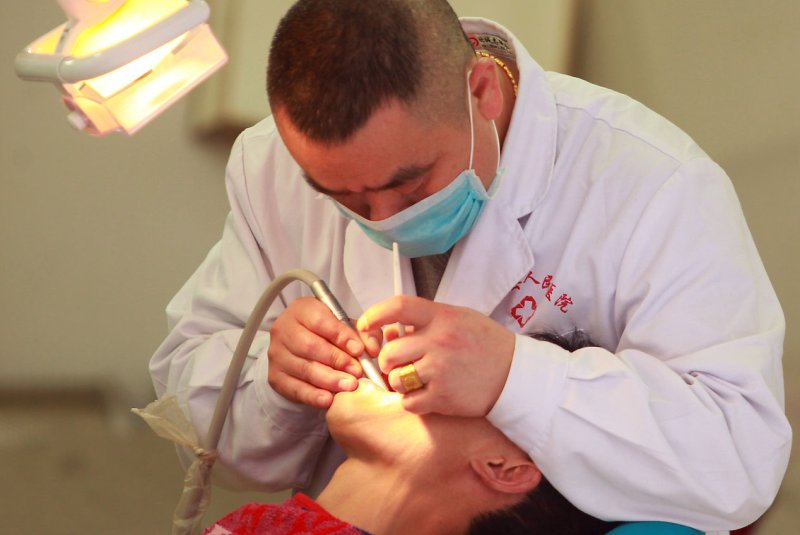Dentists may over-prescribe opioid pain relievers following procedures, an analysis of data suggests. File photo by Stephen Shaver/UPI |
License Photo
Feb. 4 (UPI) -- For the most part, doctors have taken action to reduce the level of opioid painkillers they prescribe -- except for dentists.
A study published Tuesday in the American Journal of Preventive Medicine reveals more than half of all opioid prescriptions for dental procedures written in the United States between 2011 and 2016 exceeded the three-day supply limitation recommended by the Centers for Disease Control and Prevention.
In addition, one third of those who received opioid prescriptions for pain following dental procedures were given stronger drugs than needed.
"Unlike national trends, opioid over-prescribing by dentists is increasing," study co-author Katie J. Suda, a professor at the University of Pittsburgh School of Medicine, said in a press release. "Our results should initiate a call to action to professional organizations and public health and advocacy groups to improve the guidelines for prescribing opioids for oral pain."
Research has suggested that dentists are among the leading prescribers of opioids in the United States. However, the level to which they comply with prescribing guidelines is not well known.
For their cross-sectional analysis, Suda and her colleagues used Truven Health MarketScan Research Databases to assess close to 550,000 dental visits by adult patients between 2011 and 2015, prior to the implementation of the 2016 CDC guidelines for pain management.
In all, they found that 29 percent of dental patients received more powerful opioids than needed for expected post-procedure pain.
"As high prescribers of opioids writing prescriptions for a tenth of the opioids dispensed in the U.S., dentists should be included as part of the multi-faceted solution needed for the opioid epidemic," Suda said.
"Similar to medical providers, dentists need to be provided resources to aid in their prescribing decisions for pain medications," she added. "This should include clinical guidelines specific to oral pain and education on how to talk to their patients about treating their oral pain."















